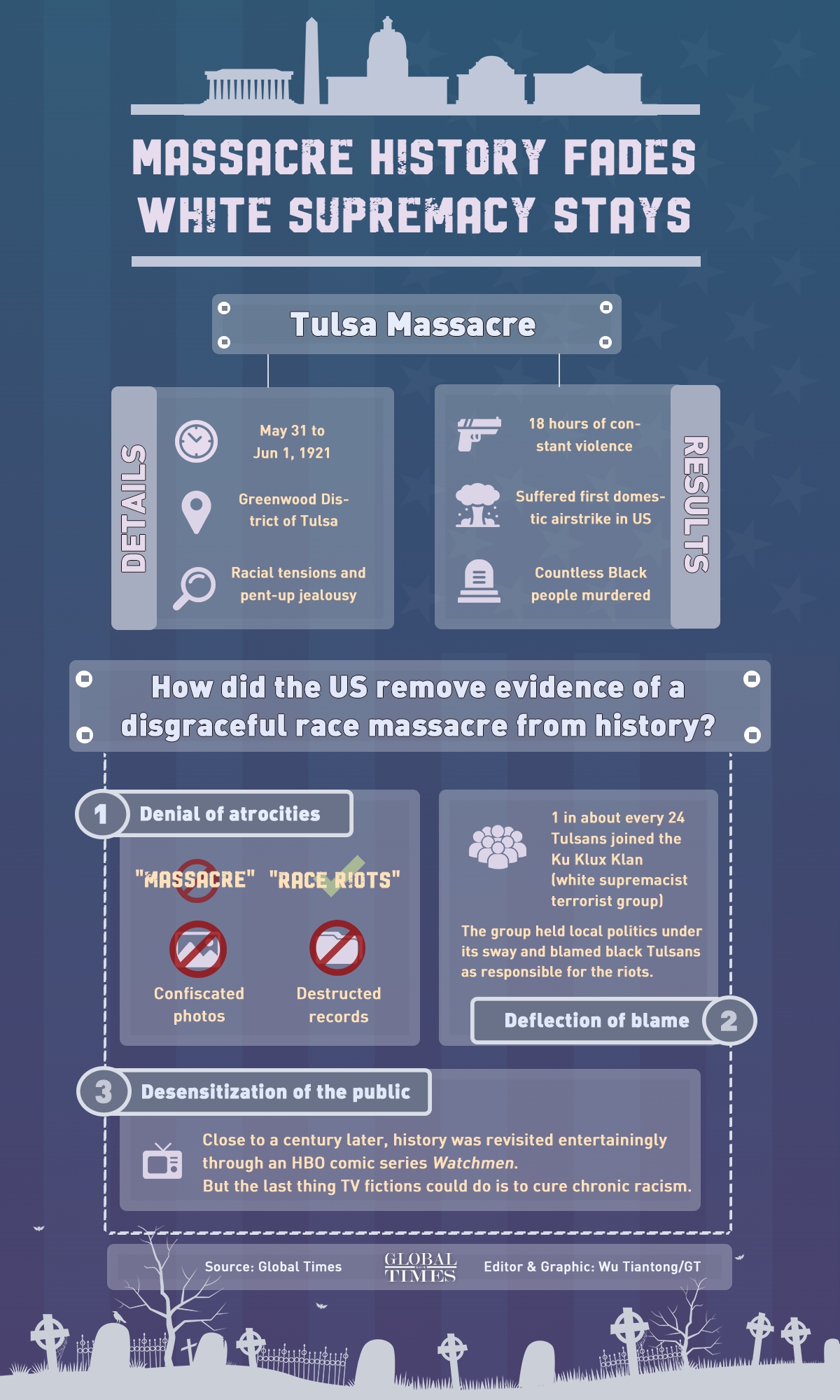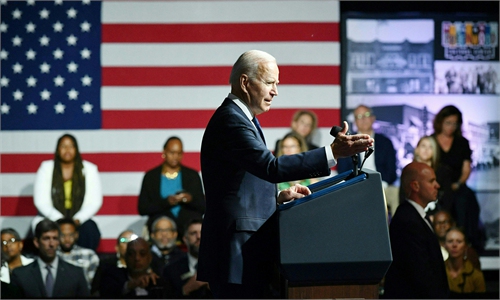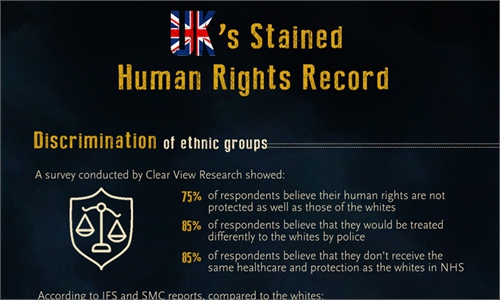
Infographic: GT
It has been over a century since the Tulsa Massacre from May 31 to June 1, 1921. The country has moved on fast, but the devastated neighborhood seems to be frozen in history.
The Greenwood District of Tulsa, also known as the "Black Wall Street", was built into the wealthiest US Black community from scratch by descendants of African slaves. But prosperity was created in the city plagued by the Jim Crow Laws. Racial tension and pent-up jealousy broke out into 18 hours of constant violence against Black Tulsans. The once vibrant city endured the first domestic airstrike in the United States, saw countless Black people murdered, and bore arson and looting of 1,000 homes and businesses. Mass graves believed to be the massacre's burial site were unearthed.
The city fell into deep silence about the history. The survivors didn't want to rip apart their wounds. The city and state officials wanted the history forgotten. It wasn't until 2000 that the slaughter was included in the Oklahoma public school's curriculum, and it didn't enter American history textbooks until recent years. The Tulsa museum opened in 1990s housed no trace of the massacre until 2012. For more than half a century, Tulsans who were young enough to escape the bloodshed were kept in the dark.
The cover-up only needs three Ds — denial, deflection and desensitization. It is a common practice following PR crises in the United States. But what makes the routine stand out in the Tulsa Massacre is the entrenched white supremacy back then and today still.
Denial of atrocities
Immediately after the bloodshed, dead bodies were buried or thrown into the river. Under the demand of local authorities, photos were confiscated, records were destroyed and research on the topic meant life threats. Instead of "massacre", the episode was described as "race riot" to pin as much blame on Black victims as White perpetrators actually deserve. Every repetition of the inadequate term is a brush-off of the "sustained and murderous" assault on Black lives and property.
Deflection of blame
At the end of 1921, one in about every 24 Tulsans joined the Ku Klux Klan. The white supremacist terrorist group was not only in a frenzy of lawlessness but held local politics under its sway. After the massacre, the group became legal locally, and the Black Tulsans were deemed responsible for the riots. The official stance of Oklahoma, or an outright lie, remained in place before the 2001 report on the slaughter was finally released by the state's commission.
Desensitization of the public
Close to a century later, the history was revisited entertainingly through an HBO comic series Watchmen. The Executive Producer said, "there is no defeating white supremacy — it's not going away". He is right. The last thing TV fictions could do is to cure chronic racism, while politicians are busy clamping down on talks about race after the Black Lives Matter movement. Days after the police officer was convicted of Floyd's murder, the Oklahoma governor signed a ban on "indoctrinating" critical race theory in public schools so that students are not divided with race. But segregation has grown worse in American society: 169 out of 209 metropolitan regions in the country were more segregated in 2019 than in 1990, according to UC Berkeley researchers. The reluctance to admit it out of a sense of superiority has proved to deepen the chasm.
All across the United States, there are now only three Tulsa massacre survivors. What keeps them alive is the faith that they will see justice upheld, and that their Black sons and grandsons won't have to relive the pain they were and still are suffering. To their dismay, equality between White and Black Americans remains far too elusive.
The US has been whitewashing its history, so that the narrative fits and consolidates the white-dominated hierarchy. White supremacy persists on the land where all men and women are supposed to be "created equal". After 100 years, the history is fading, but threats are mounting and wounds are not healing.
The author is a commentator on international affairs. opinion@globaltimes.com.cn



